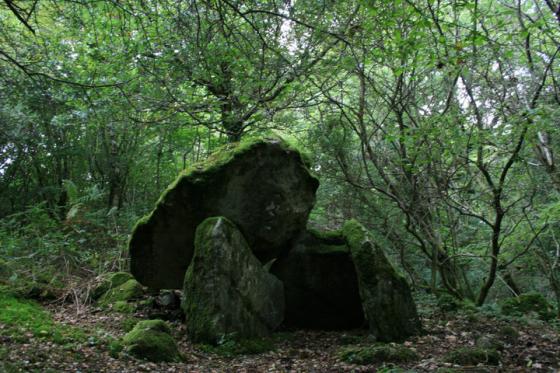
Image credit: Robert Gladstone




Sited below and to the southwest of Mynydd Llangyndeyrn summit, this handsome monolith presents a textbook example of why, in my opinion, fallen stones should be re-erected if the original hole can be discovered.
Although Coflein cites this fine monolith as a ‘possible standing stone’ there doesn’t seem any doubt as to its prehistoric pedigree...
Sian Rees (A Guide to Ancient and Historic Wales – Dyfed) states that the stone:
“...was prostrate until 1976when excavation revealed the stone hole. Pits were found nearby, indicating the [former] presence of some timber structure built up against the stone, and charcoal from one of these gave a radiocarbon date of 1,140 BC...The standing stone has now been re-erected in its original position...”









































